calsfoundation@cals.org
Distilleries
In nineteenth-century Arkansas, the distilling of spirits was done mostly for home consumption. Some small-scale distillers set up taverns in their homes or supplied nearby drinking establishments, and several larger operations emerged by the late 1800s. Distilleries at that time were plentiful and could be found all throughout the state, although prohibition efforts in the early twentieth century put an end to legal distilling in the state for many years. In the twenty-first century, the state’s handful of distilleries focus mostly on small-batch specialty spirits.
Newspapers of the 1800s frequently advertised distilleries that were opening, closing, or up for sale. One such example was a steam distillery located on Mine Creek in Hempstead County that was listed for sale in 1829. Owner John Johnson described his distillery as “a large frame building, with a still calculated to work by steam, and of sufficient capacity to produce 60 gallons of whiskey every 24 hours—all new and in complete order.” In 1848, N. B. Denningsburg of Evansville (Washington County) listed a 200-gallon still for sale.
In 1862, the state banned distilleries in an effort to conserve grain and fruit for food during the Civil War. The law was largely ignored, however, due to the continued demand for intoxicating spirits. The bigger threat to Arkansas distillers was federal law—the Act of 1862, which was passed while Arkansas was part of the Confederacy, made it illegal to operate a distillery without a license. Distillers were suddenly required to pay federal tax on their products. A legion of tax collectors, known as “revenuers,” was created to search the countryside for illegal stills.
In 1886, there were nineteen licensed distilleries in the state, though only five were actively producing spirits—Williams & Co. in Francis (Boone County), J. R. Patterson & Co. in Franklin (Izard County), I. R. Pettigrew in Pettigrew Mills (Madison County), Patterson & Co. in Batesville (Independence County), and Lane Wilks in Hindsville (Madison County). By 1893, the number had climbed to fifty-six.
Robert Washington (R. W.) Earnheart’s distillery in Earnheart (Independence County)—west of Batesville, near the community of Bethesda (Independence County)—was believed to be the biggest in northern Arkansas when it opened in 1887. It produced 100 gallons of whiskey per day at its peak. In 1907, the tax on whiskey was $1.10 per gallon, costing Earnheart $110 per day to operate his distillery. He sold two types of spirits—“Earnheart’s Old Standard Whiskey” and “Arkansaw Straight Corn Whiskey.” The distillery closed in 1914.
The Macon and Carson Distillery was thought to be the biggest west of the Mississippi River after it opened in Bentonville (Benton County) in 1893. It was one of many fruit distilleries in the state, which utilized portions of farmers’ crops that were otherwise unfit for market. It was capable of producing up to 215,000 gallons of 110-proof apple brandy per year.
The Newberry Act of 1915 forbade the manufacture and sale of alcohol in Arkansas, effectively ending the legal distilling of spirits a full five years before the onset of national Prohibition. It would be many decades before legal distilling returned to Arkansas.
By 2022, there were eleven distilling permits issued by the state, with nine actively producing spirits.
When it opened in 2010, Rock Town Distillery became the first legal post-Prohibition distillery in the state. Located in Little Rock (Pulaski County) and founded by Phil Brandon, Rock Town has won numerous awards and is best known for its whiskeys and bourbons. Old Ed Ward’s Distillery in Newport (Jackson County) also opened in 2010. It most famously produced a brand of Arkansas moonshine. The building and equipment were later sold to Ross Jones and Phillip Finch, who relocated the distillery to the old post office in Newport and opened Postmaster Spirits in 2018.
White River Distillery in Gassville (Baxter County) opened in 2012. It produced a variety of moonshine products, including an apple pie and a cherry pie version. The distillery closed following the death of founder Gary Taylor in 2021.
Hot Springs (Garland County) became home to two distilleries. Hot Springs Distilling started producing spirits in 2018. Father-and-son team Keith and Scott Atkinson was inspired to open the place following a trip to Scotland. Crystal Ridge Distillery opened in 2020 and is located near Hot Springs’ historic downtown.
Butler Creek Distilling in Eureka Springs (Carroll County) began making whiskey in 2019. Owners Greg and Vicki Schneider also began operating Railway Winery. Also opening in 2019 was Fox Trail Distillery in Rogers (Benton County), producing small-batch vodka made with yellow corn and a cold brew coffee liqueur called Oak & Bean.
Delta Dirt Distillery opened on Cherry Street in Helena-West Helena (Phillips County) in 2021. Owned and operated by Harvey and Donna Williams and their three adult children, the distillery notably uses sweet potatoes grown on the African American family’s third-generation farm to make its signature “sweet blend” vodka. The vodka won the best-of-class award at the 2022 American Craft Spirits Association competition.
Falling Rock is located near Huntsville (Madison County). The distillery partnered with the RG Macon & Carson brand to revive the apple brandy originally made by the earlier distillery of the same name.
Core Brewing & Distilling Co. became known for its beer and seltzer but began producing ready-to-drink (RTD) mixed cocktails in 2021. These include Hotspur (gin-based), Johnson County (vodka-based), and Shipwreck (rum-based).
For additional information:
Campbell-Miller, Sarah. “Distilleries Pouring Out New Products.” Arkansas Business, August 17, 2020. https://www.arkansasbusiness.com/article/132472/distilleries-pouring-out-new-products (accessed January 19, 2023).
Chase, Glen, and Magsam, John. “Arkansas Distillers Eager to Start.” Arkansas Democrat-Gazette, April 13, 2014. https://www.nwaonline.com/news/2014/apr/13/arkansas-distillers-eager-start-20140413/ (accessed January 19, 2023).
Hebda, Dwain. “Hot Springs Hooch: New Distillery Emerges from Pandemic Leaner, Wiser.” Arkansas Times, January 29, 2021. https://arktimes.com/eat-arkansas/2021/01/29/hot-springs-hooch-new-distillery-emerges-from-pandemic-leaner-wiser (accessed January 19, 2023).
Holmes, Paul. “Enthusiasm for Brewing Bubbles Over into New Newport Liquor Distillery.” Talk Business & Politics, January 14, 2019. https://talkbusiness.net/2019/01/enthusiasm-for-brewing-bubbles-over-into-new-distillery/ (accessed January 19, 2023).
Johnson, Ben F., III. John Barleycorn Must Die: The War Against Drink in Arkansas. Fayetteville: University of Arkansas Press, 2005.
Magsam, John. “New Brandy Taps into Old Story.” Arkansas Democrat-Gazette, January 19, 2020. https://www.nwaonline.com/news/2020/jan/19/new-brandy-taps-into-old-story-20200119/ (accessed January 19, 2023).
McLeod, Jerry. “High Profile: Phil Brandon Started a Craft Distillery in His Hometown, Moved It to Main Street and Watched It Take Off.” Arkansas Democrat-Gazette, June 16, 2019. https://www.arkansasonline.com/news/2019/jun/16/philip-dillaha-brandon-20190616/ (accessed January 19, 2023).
Sorensen, Brian. “Delta Dirt Distillery Builds on Family Farm Legacy.” Arkansas Times, March 31, 2022. https://arktimes.com/dining/dining-feature/2022/03/31/delta-dirt-distillery-builds-on-family-farm-legacy (accessed January 19, 2023).
———. “A Survey of Arkansas’s Distilleries.” Arkansas Times, November 8, 2021. https://arktimes.com/arkansas-blog/2021/11/08/a-survey-of-arkansass-distilleries (accessed January 19, 2023).
Brian Sorensen
Fayetteville, Arkansas


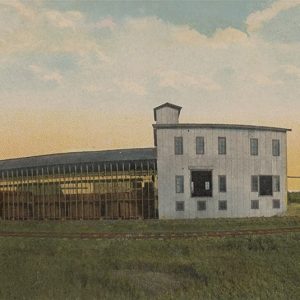

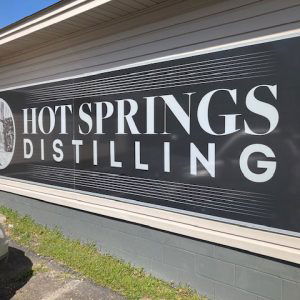
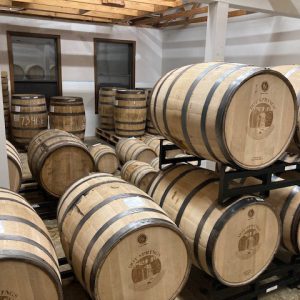
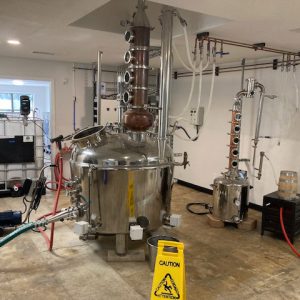
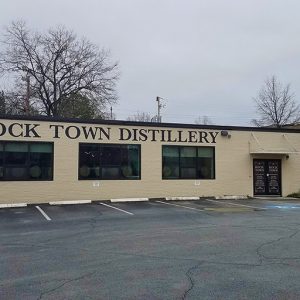




Comments
No comments on this entry yet.